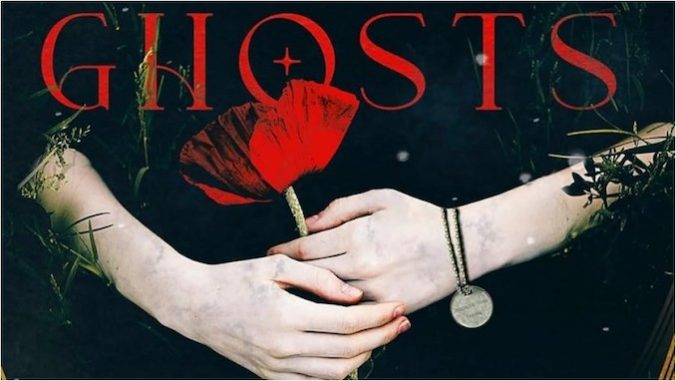The Warm Hands of Ghosts Is a Bittersweet Story of Things Both Lost and Found

Katherine Arden is best known for her Winternight trilogy, a lush fantasy series that incorporates elements of medieval Russian history and folklore, complex political intrigue, and a fairytale-esque central romance between Vasya, a feral, fierce girl who can see spirits, and the frost king Morozko. (Consider this your gentle nudge to start reading The Bear and the Nightingale immediately, is what I’m saying.)To say that a lot of readers— read: me—were eagerly awaiting the announcement of what she might do next is something of an understatement. But I doubt any of us expected The Warm Hands of Ghosts, a haunting, lyrical exploration of grief and trauma with a dash of the fantastical on top.
A book that feels more overtly like traditional historical fiction than Arden’s earlier works, The Warm Hands of Ghosts is not always a particularly easy read. It’s a story that wrestles with loss, connection, family, and the heartbreak of one world painfully giving way to another. It’s also a vivid war novel, delving into the apocalyptic feel of World War I in a way that often feels like a sci-fi story. As flying machines drop bombs from the sky and chemical gases waft through the air and silently choke men to death, soldiers still fight with bayonets, send messages with the help of pigeons, and rely on horses and mules to move munitions. So much of this setting carries a feeling of intense unreality, a sense that’s made all the more poignant by the fact that our current pop culture landscape tends to eschew World War I narratives in favor of those about Europe’s second great war. The end result is a painfully liminal story that feels simultaneously magical and all too real, a tale in which it seems possible to see the ideas of the old world slowly transforming into those of the new right in front of us.
The story follows Laura Iven, a combat nurse sent home from Flanders to Nova Scotia after being seriously wounded. Struggling to rebuild a life for herself and reeling from the sudden deaths of both her parents after a munitions ship explodes in Halifax harbor, she receives word that her soldier brother Freddie, serving at the front in Belgium, has gone missing and is presumed dead. Overwhelmed with questions—and an unspoken hope that he somehow might still be alive—she volunteers to return to Europe and work at a private hospital with a handful of other women who are each looking to fill the holes in their own souls.
An alternating secondary timeline set a few months before follows Freddie’s story on the front lines, where he is trapped beneath a German pillbox during the fighting. Buried underground, Freddie is sure his own death is imminent, ironically trapped right alongside a man named Hans Winter, one of the very German soldiers he had been trying so desperately to kill. But Hans and Freddie miraculously survive, leaning on each other and embracing the unlikely bond that springs up between them to dig their way out of the mud and find a way through the battlefield. Their unexpected connection is both heartfelt and heartrending, as Freddie fights to get Winter some much-needed medical attention and makes difficult moral choices in the name of keeping them both alive that will haunt him for the rest of his life.
-

-

-

-

-

-

-

-

-

-

-

-

-

-

-

-

-

-

-

-

-

-

-

-

-

-

-

-

-

-

-

-

-

-

-

-

-

-

-

-








































